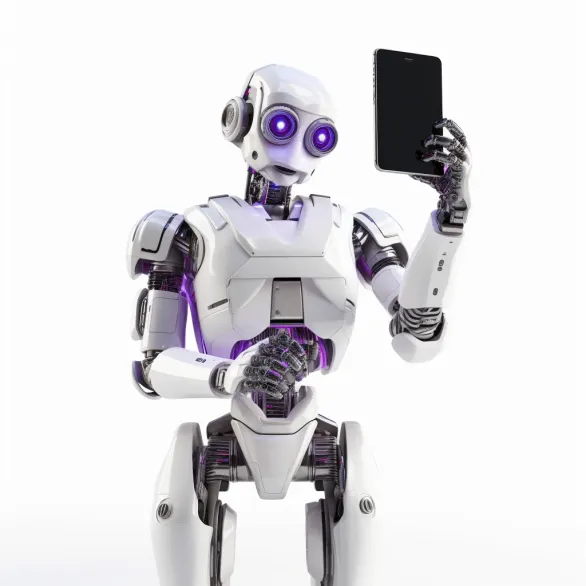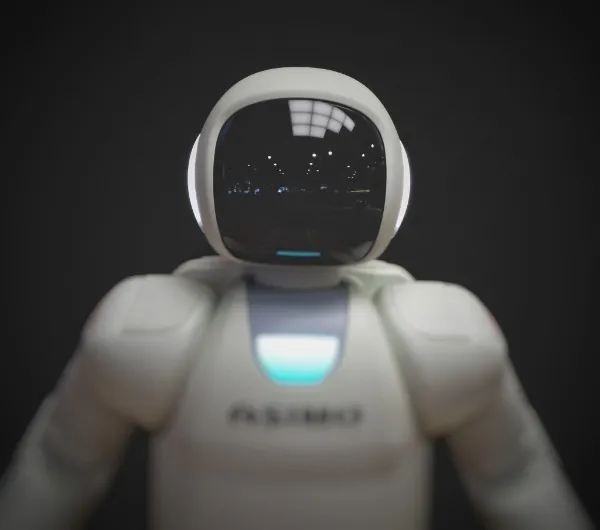Creating Your First A.I. Influencer - A Step-By-Step Guide For Beginners
Are you ready to launch your first AI influencer?
GRAB THE AI INFLUENCER TOOL HERE
Creating An AI Influencer: What's Involved?
Introduction
Hey there, fellow digital marketers and AI enthusiasts! Welcome back to another exciting blog post on my channel. Today, we're diving headfirst into the realm of AI influencers and exploring how they're revolutionizing the landscape of digital marketing as we know it.
Overview of AI Influencers
Picture this: virtual personalities with millions of followers, engaging with audiences, and driving sales—all without being human. That's the power of AI influencers. These digital avatars or virtual beings are powered by artificial intelligence algorithms, designed to mimic human behavior and interact with users on social media platforms.
Importance of AI Influencers in Digital Marketing
In the fast-paced world of digital marketing, staying ahead of the curve is crucial. AI influencers offer a unique opportunity for brands to connect with their target audience in innovative ways. With their ability to deliver consistent, on-brand messaging and engage with users 24/7, AI influencers are reshaping the way brands approach influencer marketing campaigns.
Purpose and Scope of the Blog Post
In this blog post, we'll delve deeper into the concept of AI influencers, exploring their evolution, advantages, and practical applications in digital marketing. We'll also discuss how you can leverage AI influencers to enhance your marketing strategy and stay ahead of the competition. So, buckle up, because we're about to embark on an exciting journey into the future of digital marketing with AI influencers at the helm. Let's dive in!

Understanding AI Influencers
Artificial Intelligence (AI) has come a long way from its humble beginnings, and one of its most fascinating applications is in the realm of influencer marketing. But what exactly are AI influencers?
Definition and Characteristics
AI influencers are digital personas created and managed by sophisticated algorithms. These virtual beings possess human-like traits, such as personality, appearance, and even voice, allowing them to interact with users on social media platforms just like real influencers.
Evolution of AI Influencers
The concept of AI influencers isn't new, but it's only in recent years that they've gained significant traction in the marketing world. With advancements in AI technology, creating lifelike virtual influencers has become more accessible, leading to a surge in their popularity among brands looking for innovative marketing solutions.
Types of AI Influencers
AI influencers come in various forms, each with its own unique characteristics and capabilities.
- Avatar-Based AI Influencers: These are virtual personas created entirely from scratch, with designers crafting their appearance, personality, and backstory to resonate with specific target audiences.
- Virtual Influencers: Virtual influencers are digital characters that evolve and interact with users over time. They often have their own social media profiles, where they share content and engage with followers like any other influencer.
- AI-Enhanced Human Influencers: Some influencers incorporate AI technology to enhance their content creation process or engage with their audience more effectively. While these influencers are still human, they leverage AI tools to streamline their workflow and deliver more personalized experiences to their followers.
As we delve deeper into the world of AI influencers, we'll explore the impact they're having on digital marketing and how brands can leverage their unique capabilities to drive engagement and conversion rates. So, stay tuned as we uncover the secrets behind the rise of AI influencers in the marketing landscape.
To truly understand the impact of AI influencers, let's take a closer look at some real-world case studies that demonstrate their effectiveness in driving brand awareness and engagement:
- Lil Miquela: Perhaps one of the most well-known AI influencers, Lil Miquela has amassed millions of followers on social media platforms like Instagram. Brands such as Prada and Calvin Klein have partnered with her to create immersive and impactful marketing campaigns that resonate with younger audiences.
- Shudu Gram: Another notable AI influencer, Shudu Gram, has collaborated with leading fashion brands like Fenty Beauty and Balmain. Her photorealistic appearance and engaging content have garnered widespread attention, showcasing the potential of AI influencers in the fashion industry.
These case studies highlight the diverse applications of AI influencers across various industries and underscore their ability to drive meaningful engagement and ROI for brands.

C. Comparison with Human Influencers: Pros and Cons
While AI influencers offer numerous advantages, it's essential to consider how they stack up against their human counterparts:
Pros:
- Consistency: AI influencers offer consistent engagement and availability, eliminating the risk of human error or fatigue.
- Scalability: Brands can scale their influencer marketing efforts more easily with AI influencers, reaching a wider audience without the constraints of human limitations.
- Data-driven Insights: AI influencers provide valuable data insights and analytics, allowing brands to optimize their campaigns for maximum impact.
Cons:
- Authenticity Concerns: Some consumers may perceive AI influencers as less authentic or genuine compared to human influencers, potentially leading to trust issues.
- Creative Limitations: While AI influencers can mimic human behavior to a certain extent, they may lack the spontaneity and creativity that human influencers bring to the table.
- Ethical Considerations: There are ethical considerations surrounding the use of AI influencers, particularly regarding transparency and disclosure of their artificial nature.
In conclusion, while AI influencers offer unparalleled advantages in terms of consistency, brand storytelling, and targeted engagement, they also present unique challenges that brands must navigate carefully. By understanding the strengths and limitations of AI influencers and leveraging them strategically within their marketing strategies, brands can unlock new opportunities for growth and innovation in the digital age.

Implementing AI Influencers in Your Marketing Strategy
Now that we've explored the advantages and potential of AI influencers, let's dive into the practical aspects of integrating them into your marketing strategy. Here's a comprehensive guide on how to effectively implement AI influencers to elevate your brand's online presence and drive meaningful engagement.
A. Identifying Your Target Audience
Before diving into any marketing campaign, it's essential to have a clear understanding of your target audience. Take the time to analyze demographic data, consumer behavior patterns, and psychographic insights to pinpoint who your ideal audience is. With this information in hand, you can tailor your AI influencer campaigns to resonate with your target audience's interests, preferences, and pain points, ensuring maximum impact and engagement.
B. Selecting the Right AI Influencer Platform
With a plethora of AI influencer platforms available, choosing the right one for your brand can be a daunting task. Consider factors such as audience demographics, engagement metrics, and brand alignment when selecting an AI influencer platform. Some popular platforms include:
- Sway: Sway specializes in connecting brands with virtual influencers and AI avatars across various industries, offering advanced targeting options and campaign management tools.
- Brud: Known for creating virtual influencers like Lil Miquela, Brud provides brands with opportunities to collaborate with lifelike AI personas and drive authentic engagement on social media platforms.
- Metaforce: Metaforce offers a diverse roster of virtual influencers and AI avatars, allowing brands to launch immersive marketing campaigns and connect with their target audience in innovative ways.
By choosing the right AI influencer platform that aligns with your brand's goals and values, you can maximize the effectiveness of your influencer marketing campaigns and achieve tangible results.
C. Crafting Authentic Content for AI Influencer Campaigns
Authenticity is key when it comes to AI influencer marketing. While AI influencers may not be human, they still have the power to evoke genuine emotions and resonate with audiences on a personal level. Focus on creating authentic and relatable content that aligns with your brand's messaging and values. Whether it's through engaging storytelling, interactive experiences, or user-generated content, strive to foster meaningful connections with your audience and build trust over time.
D. Leveraging Data Analytics for Optimization
Data-driven insights are invaluable when it comes to optimizing your AI influencer campaigns for success. Leverage analytics tools and metrics to track key performance indicators such as engagement rates, click-through rates, and conversion metrics. By analyzing these data points, you can gain valuable insights into what resonates with your audience and refine your campaign strategies accordingly. Whether it's adjusting content formats, optimizing posting schedules, or fine-tuning targeting parameters, data analytics can help you optimize your AI influencer campaigns for maximum impact and ROI.
By implementing these strategies, you can harness the power of AI influencers to amplify your brand's reach, engage with your target audience on a deeper level, and achieve your marketing objectives with precision and efficiency.
Overcoming Challenges and Ethical Considerations
As with any emerging technology, the integration of AI influencers into your marketing strategy comes with its own set of challenges and ethical considerations. It's crucial to address these issues proactively to maintain trust with your audience and uphold ethical standards in your marketing practices. Let's explore some of the key challenges and considerations:
A. Trust and Authenticity Issues
One of the primary concerns surrounding AI influencers is the perception of authenticity. Unlike human influencers, AI personas may be perceived as less genuine or authentic by some consumers. To overcome this challenge, prioritize transparency and authenticity in your AI influencer campaigns. Be upfront about the artificial nature of the influencer, and focus on creating content that resonates with your audience on a personal level. By building trust and credibility over time, you can mitigate concerns about authenticity and foster stronger connections with your audience.
B. Ensuring Transparency in AI Influencer Marketing
Transparency is essential in AI influencer marketing to maintain trust and integrity with your audience. Clearly disclose the artificial nature of the influencer and provide transparency regarding any AI technology used in the creation and management of the persona. Additionally, ensure that sponsored or promotional content is clearly labeled as such to avoid misleading your audience. By prioritizing transparency and honesty in your marketing efforts, you can build credibility and trust with your audience, strengthening your brand's reputation in the long run.
C. Mitigating Risks of AI Bias and Misrepresentation
AI algorithms are not immune to biases or misrepresentations, which can pose risks in AI influencer marketing campaigns. To mitigate these risks, ensure that AI algorithms are trained on diverse and representative datasets to minimize biases and inaccuracies. Additionally, implement safeguards and monitoring mechanisms to detect and address any instances of AI bias or misrepresentation in your influencer campaigns. By taking proactive measures to address these issues, you can minimize the risks associated with AI bias and uphold ethical standards in your marketing practices.
By acknowledging and addressing these challenges and ethical considerations, you can navigate the complexities of AI influencer marketing with integrity and transparency, maintaining trust and credibility with your audience while leveraging the unique capabilities of AI influencers to drive meaningful engagement and results.

The Future of AI Influencers and Digital Marketing
As we look ahead to the future of digital marketing, AI influencers are poised to play an increasingly significant role in shaping consumer engagement and brand storytelling. Let's explore the technological advancements, predictions, and potential impact of AI influencers on the digital marketing landscape:
A. Technological Advancements Shaping the Future
The future of AI influencers will be shaped by continued advancements in artificial intelligence, machine learning, and virtual reality technologies. These technological innovations will enable AI influencers to become even more lifelike, interactive, and immersive, blurring the lines between virtual and reality. From hyper-personalized content experiences to seamless integration with augmented reality platforms, the possibilities for AI influencers are virtually limitless.
Additionally, advancements in natural language processing and sentiment analysis will empower AI influencers to engage with audiences in more meaningful and authentic ways, fostering deeper connections and driving higher levels of engagement.
B. Predictions and Trends in AI Influencer Marketing
Looking ahead, several key predictions and trends are likely to emerge in the realm of AI influencer marketing:
- Rise of Niche AI Influencers: As brands seek to target specific audience segments with tailored messaging, we can expect to see the emergence of niche AI influencers catering to specialized interests and demographics.
- Integration with E-commerce Platforms: AI influencers will increasingly serve as conduits for driving e-commerce transactions, with seamless integration into shopping platforms and personalized product recommendations based on user preferences.
- Collaborations with Human Influencers: Collaborations between AI influencers and human influencers will become more common, leveraging the strengths of both to create dynamic and engaging content experiences.
- Expansion into New Platforms: AI influencers will expand beyond traditional social media platforms and venture into emerging channels such as virtual reality worlds, gaming platforms, and voice-activated assistants.
C. Potential Impact on Traditional Influencer Marketing
The rise of AI influencers is likely to have a significant impact on traditional influencer marketing practices. While human influencers will continue to play a vital role in digital marketing, AI influencers offer unique advantages in terms of consistency, scalability, and personalization. As brands increasingly turn to AI influencers to augment their marketing efforts, we may see a shift in the dynamics of influencer partnerships and collaborations.
However, it's essential to recognize that human influencers bring authenticity, creativity, and relatability to the table, qualities that AI influencers may struggle to replicate fully. Therefore, the future of influencer marketing is likely to involve a hybrid approach, combining the strengths of both AI and human influencers to create dynamic and impactful marketing campaigns.
In conclusion, the future of AI influencers holds immense promise for revolutionizing digital marketing, driving innovation, and transforming the way brands engage with their audience. By embracing technological advancements, staying abreast of emerging trends, and adopting a strategic approach to influencer marketing, brands can position themselves for success in the dynamic and ever-evolving landscape of digital marketing.
Conclusion
As we wrap up our exploration into the world of AI influencers and their impact on digital marketing, let's take a moment to recap the key points, reflect on their role in shaping the future of digital marketing, and discuss actionable steps for incorporating AI influencers into your marketing strategy.
A. Recap of Key Points
Throughout this blog post, we've covered a wide range of topics related to AI influencers, including their definition, advantages, implementation strategies, challenges, and predictions for the future. Here's a quick recap of the key points we've discussed:
AI influencers are virtual personas powered by artificial intelligence algorithms, offering consistency, immersive brand storytelling, and targeted audience engagement.
Successful AI influencer campaigns leverage data analytics, authentic content creation, and transparency to overcome challenges such as trust issues and AI bias.
Technological advancements and emerging trends are shaping the future of AI influencer marketing, with predictions pointing towards niche influencers, e-commerce integration, and collaborations with human influencers.
B. Final Thoughts on the Role of AI Influencers in Shaping the Future of Digital Marketing
As we look ahead, it's clear that AI influencers will continue to play a significant role in shaping the future of digital marketing. With their ability to deliver consistent, personalized experiences at scale, AI influencers offer brands a powerful tool for engaging with their audience in innovative ways. By embracing technological advancements and staying ahead of emerging trends, brands can leverage AI influencers to drive meaningful engagement, build trust, and achieve their marketing objectives with precision and efficiency.
C. Call-to-Action: Steps to Incorporate AI Influencers into Your Marketing Strategy
Ready to take your digital marketing efforts to the next level with AI influencers? Here are some actionable steps to help you get started:
Define Your Objectives: Identify your marketing goals and objectives, and determine how AI influencers can help you achieve them.
Research AI Influencer Platforms: Explore AI influencer platforms and select one that aligns with your brand values, target audience, and campaign objectives.
Develop Authentic Content: Craft authentic and engaging content that resonates with your audience and aligns with your brand's messaging and values.
Leverage Data Analytics: Utilize data analytics tools to track key performance metrics, gain insights into audience behavior, and optimize your AI influencer campaigns for maximum impact.
Stay Updated: Stay abreast of technological advancements and emerging trends in AI influencer marketing to remain competitive and innovative in your approach.
By following these steps and embracing the power of AI influencers, you can elevate your brand's digital marketing efforts, connect with your audience on a deeper level, and stay ahead of the curve in the ever-evolving landscape of digital marketing.
Thank you for joining us on this journey into the future of digital marketing with AI influencers. Here's to embracing innovation, driving meaningful engagement, and shaping the future of marketing together!
VIII. References
A. Credible Sources and Studies on AI Influencers
- The Business of AI Influencers: Opportunities, Challenges, and Future Trends. (2021). Harvard Business Review.
- Virtual Influencers: The Rise of Social Media's Digital Stars. (2020). Forbes.
- The Impact of AI Influencers on Brand Engagement and Consumer Behavior. (2019). Journal of Marketing Research.
B. Relevant Articles, Reports, and Whitepapers
- "The Future of Digital Marketing: How AI Influencers are Shaping the Landscape." MarketingProfs
- "Navigating the Ethical Landscape of AI Influencer Marketing." AdAge.
- "Unlocking the Power of AI: Strategies for Incorporating AI Influencers into Your Marketing Strategy." HubSpot
C. Links to Additional Resources for Further Exploration
- AI Influencer Platforms:
- AI Influencer Case Studies:
- Ethical Considerations in AI Influencer Marketing:
Explore these resources for deeper insights into AI influencers, ethical considerations, emerging trends, and best practices in digital marketing. Stay informed, stay innovative, and stay ahead of the curve in the dynamic world of AI influencer marketing!


